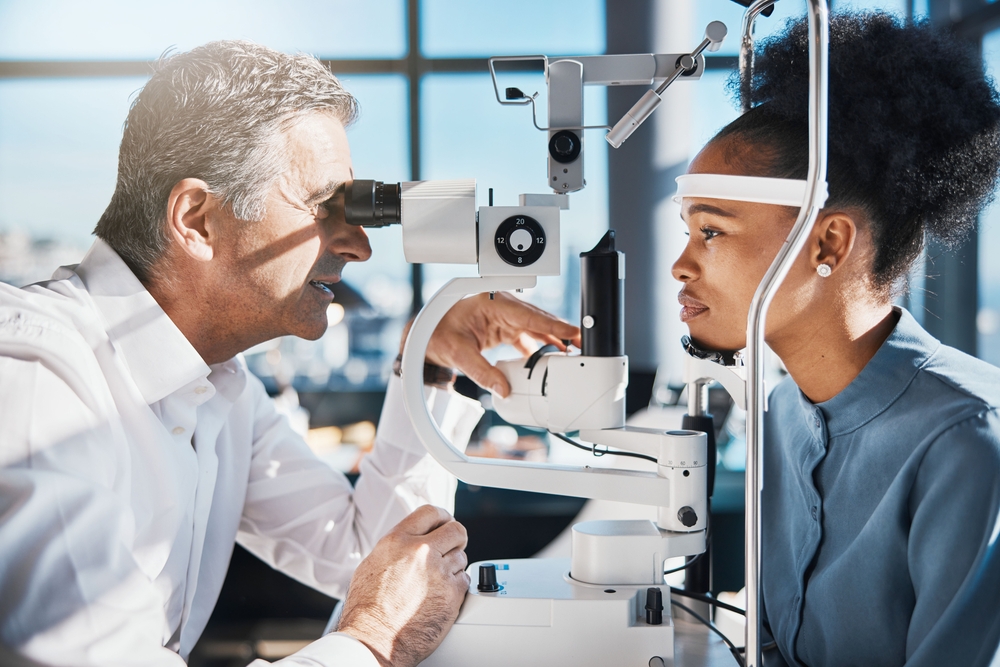
What to Expect During a Comprehensive Eye Exam
Routine eye exams are vital for maintaining healthy vision and catching any potential issues before they become serious. At 20/20 EyeVenue, our comprehensive eye exams are designed to assess every aspect of your eye health, from your visual acuity to the overall health of your eyes. If you're wondering what to expect during your visit, here's a breakdown of the steps involved in a comprehensive eye exam.
How to Prepare for Your Eye Exam
• Bring any prescription glasses or contact lenses you currently use.
• List any symptoms, questions, or concerns you have about your vision.
• Plan for possible dilation by arranging for a driver or bringing sunglasses, as bright light might be uncomfortable afterward.
A Thorough Patient History
Your comprehensive eye exam starts with a conversation. We’ll ask you about your medical history, current medications, lifestyle, and any specific visual concerns or symptoms you may be experiencing. This helps us understand potential risk factors and tailor the exam to meet your needs.
Vision Tests
One of the most common parts of the eye exam is a visual acuity test. You’ll be asked to read letters on an eye chart to determine the sharpness of your vision at various distances. We also assess your eye’s refractive error to see if you need corrective lenses or if your current prescription needs an update.
Our optometrist will evaluate your eye muscles to ensure they are working correctly and in coordination with one another. This quick test helps us identify any issues with eye movement or alignment, which can affect how you see and process visual information.
Visual Field Test
Your peripheral vision is just as important as your central vision. The visual field test checks for gaps or blind spots in your vision, which can sometimes indicate underlying eye conditions such as glaucoma. Our advanced equipment makes this test simple and efficient.
Pupil and Eye Reaction Test
We examine how your pupils respond to light and test your eye’s reaction to various stimuli. Abnormal responses can provide insights into possible issues with your nervous system or eye health, helping us catch potential problems early.
Intraocular Pressure Test
High pressure within the eye can be a sign of glaucoma, so we measure intraocular pressure (IOP) as part of your comprehensive exam. While the "puff of air" test is widely known, we offer newer, more comfortable methods for this assessment at 20/20 EyeVenue.
Slit-Lamp Examination
The slit lamp provides a magnified view of the different structures within your eye, including the cornea, lens, and retina. This exam allows our optometrist to detect early signs of eye conditions like cataracts, macular degeneration, and diabetic retinopathy.
Retinal Examination
Often referred to as ophthalmoscopy, this exam involves looking at the back of your eye to assess the health of your retina and optic nerve. We may dilate your pupils for this part of the exam to get a clearer view, especially if you’re at higher risk for conditions affecting the retina.
Additional Tests as Needed
Based on your results, additional tests may be recommended. For instance, if there are signs of dry eye, we may perform a tear analysis, or if you have a family history of glaucoma, we might conduct an Optical Coherence Tomography (OCT) scan for a closer look.
Schedule Your Exam at 20/20 EyeVenue Today
Regular comprehensive eye exams are essential for everyone, regardless of age or current vision quality. We’re here to make your experience comfortable, informative, and thorough.
Book your comprehensive eye exam with 20/20 EyeVenue to keep your vision clear and your eyes healthy for years to come. Visit our office in Westminster or Strasburg, Colorado, or call (720) 740-0400 to book an appointment today.





